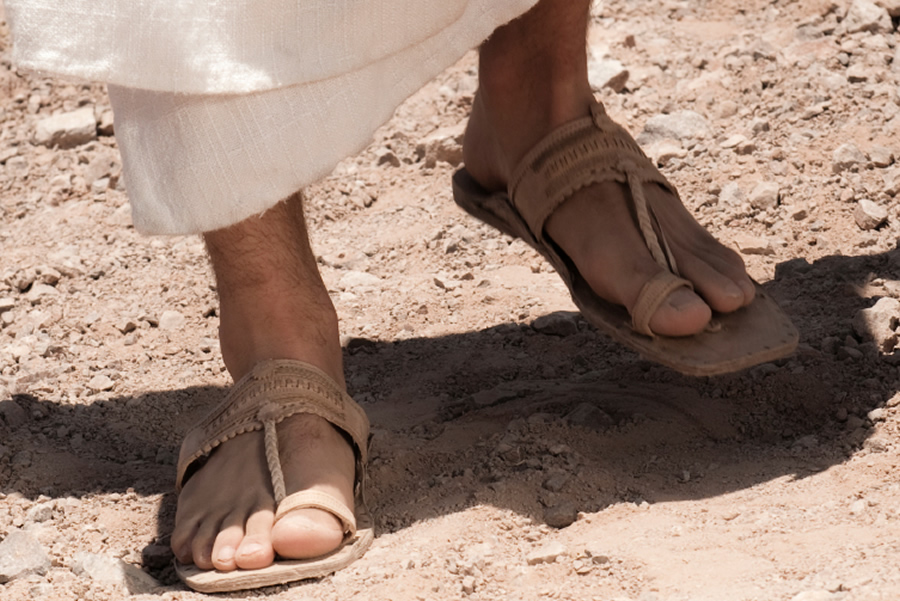
Remove The Sandals From Your Feet
03-20-2022Weekly ReflectionFr. Anthony Okolo, C.S.SpThe first reading from the Book of Exodus presents to us the encounter of Moses in the burning bush where the bush is being burnt but not consumed. Thus, out of curiosity he went to find out the meaning of such events. Incidentally, as he approaches the place, God calls not to come nearer but that he remove his shoes for the place he is standing was a Holy Ground. In most Eastern countries when you are entering Sacred Places like churches or temples you are required to remove your shoes or sandal because it signifies reverence for a Holy place. In the same way, in most western countries when entering the Sanctuary or Holy Places one is expected to remove his hat as a sign of respect for the Holy place. Thus, the removal of shoes is a confession of personal defilement and conscious unworthiness to stand in the presence of a Holy God.
Today, we are not to remove our shoes but are called to remove our pride lower our ego and present ourselves in a humble way because God is Holy and must be approached with reverence. God is Holy and must be approached with the best act of respect. The question for our individual reflection is: what is our attitude when we enter the church? Do we sincerely demonstrate complete reverence on entering this church knowing that this is a sacred place? How is our dressing as we enter the church knowing that we are in the presence of God Almighty?
In the second reading Paul reminds his audience and all of us never to forget the blessings of the past and lose faith because of the present challenges. He encourages the people to remember the efforts of the ancestors of the faith who passed through the Red Sea and were guided by the pillar of cloud. Their good works and mistakes should be examples for us.
The gospel was an account of what had happened many years ago in Jerusalem how Pilate had mingled with the blood of the Galileans in their sacrifices. In their world view, they had suffered all these because they had sinned. Jesus uses the event to teach them that the laws of nature are not to be equated with the laws of morality. He explains to them that what happened was an accident that has nothing to do with punishment for their sins. He however calls their attention to a greater catastrophe which should be their main focus: that is not prepared to meet a merciful but just God. It is a catastrophe when we fail to realize that we are mere pilgrims on earth and must give account of our stewardship before a merciful but just God. This warning is very important in our world today where people have made themselves little gods and fail to realize that there would be a time of reckoning. It is not to threaten us into fear but to encourage us to always look unto God. He sounds a call to a true life of repentance which would help us meet God in love.
The example of the fig tree that has not produced any fruit was presented in the parable of today. The owner wanted it cut down so that it stops taking up the soil. The gardener pleads for more time to cultivate the ground and fertilize it hoping it would bear fruit in future. It is a parable meant to teach us the patience of God in giving us another chance to make our lives better with him and one another. The season of Lent is the season God gives us another chance to fertilize our lives so as to bear the fruit that will draw us closer to Him. It is another way of telling us never to write off anyone or ourselves. We are to remember that anyone who is alive has the possibility of bearing good fruit if given good fertilizer and time. Don’t write anyone off just because he has not done well at your own expectation. The parable calls us to be a little more patience with other people and with ourselves. According to Living Liturgy 2022 “No one’s path to Sainthood is the same.”
Fr. Tony Okolo
BACK TO LIST